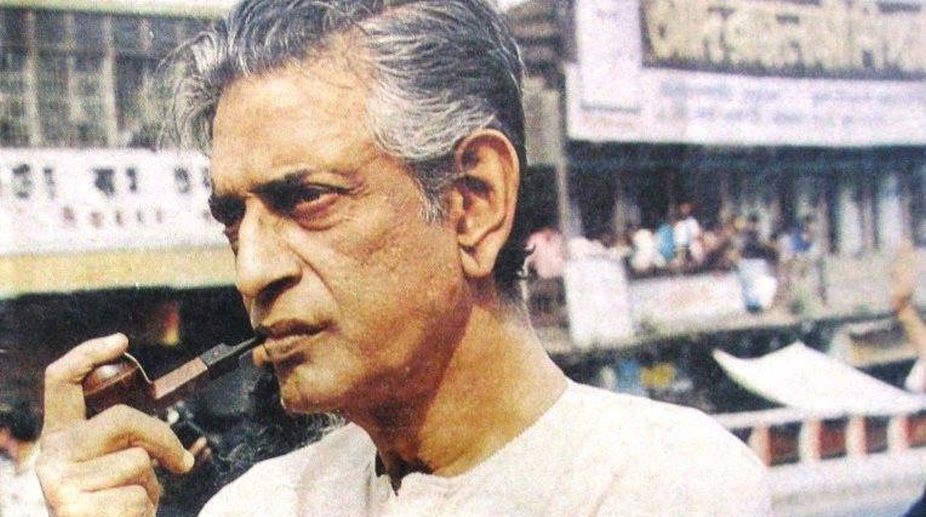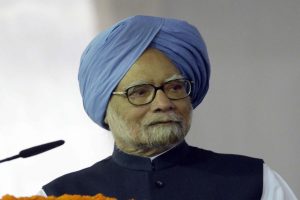These Feluda lovers are on a hunt. Not for kidnappers or killers, though. They are searching for auteur Satyajit Ray's Oscar on his birthday.
"I wonder where the Oscar is located," posed Suman Pal, as he wound his way through the throng at 1/1 Bishop Lefroy Road in south Kolkata, the sprawling estate where the legendary filmmaker lived and worked.
Advertisement
Pal and his companion, members of a social media forum on Feluda — the iconic sleuth created by Ray — trooped into the famous residence, like many others, as a tribute to the genius filmmaker, illustrator and composer, on his 96th birth anniversary on Tuesday.
"It would be good to have a glimpse of it," said Pal, who managed to click a selfie with Ray's filmmaker son Sandip, amidst much jostling by visitors, mostly belonging to the older generation.
Revolving around the 27-year-old athletic Pradosh Chandra Mitter, nicknamed Feluda, the novellas showcase the private eye's superb analytical and observational skills to dig out clues that ultimately lead to a solution of the mysteries — be it murders, theft or kidnapping. Feluda is believed to have been modelled on Sherlock Holmes.
"It's (the Oscar statue) not here… it's under lock and key," Sandip told about the Oscar.
Ray was given the Honorary Oscar in recognition of his "rare mastery of the art of motion pictures, and of his profound humanism, which has had an indelible influence on filmmakers and audiences throughout the world" in 1992, the year he died.
An unwell Ray, clutching the gold-plated Oscar statuette, gave his acceptance speech through a pre-recorded televised transmission, from his hospital bed in Kolkata (then Calcutta).
Cut to 2017. Visitors make do with clicking photographs of the 10 "local awards" statues lined up neatly on a book case in Sandip's receiving room-cum-study, next to Ray's study.
The colossal house has been thrown open to visitors, fans and family acquaintance, who pour in through the morning with bouquets, packets of sweets and birthday gifts. Garlands adorn the numerous photographs of Ray in an area outside his study.
Ray's residence spreads on to Lee Road, which has been revamped and renamed Satyajit Ray Dharani by the West Bengal government. A stone slab announcing the rechristening stands close to the gate of the house.
Ray's flat virtually resembles a shrine. Singer Anup Ghosal who rendered immortal scores in Ray films like "Goopy Gyne Bagha Byne" and "Hirak Rajar Deshe" also offered a floral tribute.
Of interest to Sandip is a pop-out birthday card, resembling a scrap book of Ray's photographs. It is inscribed with the words "Maharaja Tomare Selam" (Oh King, Salute to You) in Bengali, the verse of the eponymous song in Ray's "Goopy Gyne Bagha Byne".
Ray was born in north Calcutta, at 100 Garpar Road in 1921 to poet and author Sukumar Ray.
The Bishop Lefroy Road flat was his home for the last two decades of his life, marked with landmark films from "Pratidwandi" (1970) to "Agantuk" (1991).
Ray's first film, "Pather Panchali" (1955), won eleven international prizes, including the inaugural Best Human Document award at the 1956 Cannes Film Festival.










